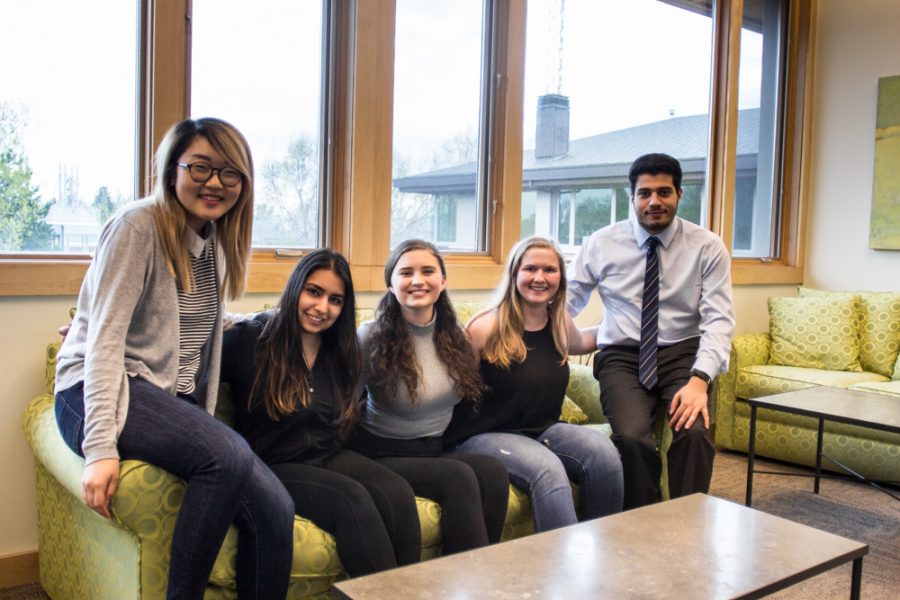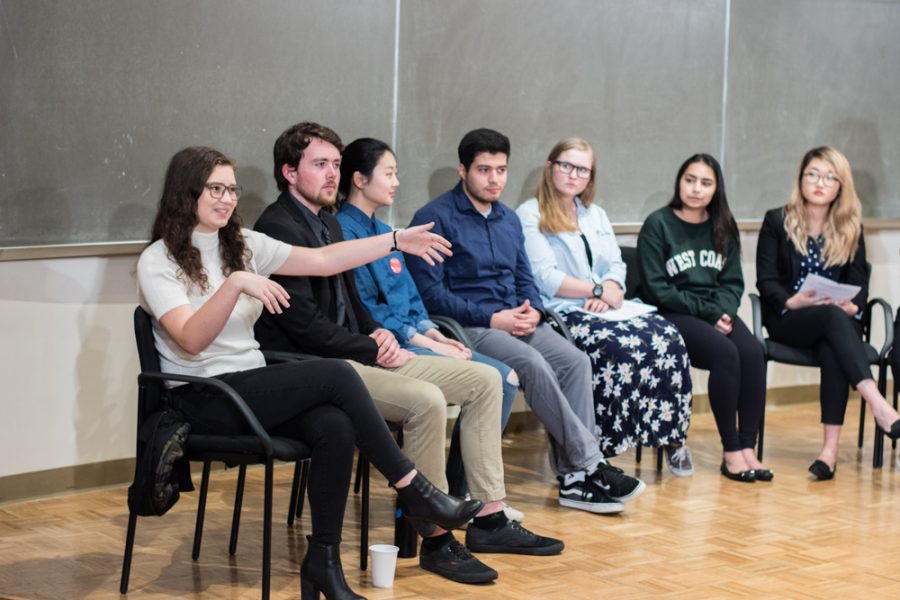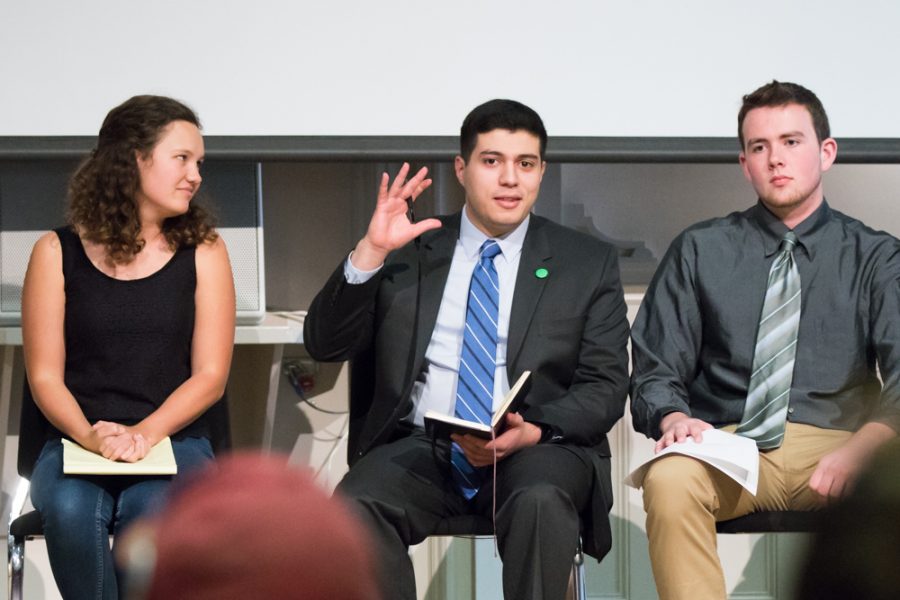
Student-taught classes such as yoga, Zumba and salsa have proven increasingly popular on campus, and legislation passed at the Associated Students of Whitman College (ASWC) senate meeting last Sunday, April 14, will allow would-be student-teachers to apply for funding for similar classes with less hassle.
Through the act, ASWC plans to actively seek students with particular skills and interests and to provide a standardized salary and budget for eight courses selected by the Finance Committee and approved by the senate.
“What I wanted to do with the [student-taught classes] act is create a more formal process [to allow] for more students to take advantage of this opportunity, to increase the number of classes we currently have and [to increase] the breadth and scope of what those classes could be,” said ASWC Vice President senior Marcial Diaz Mejia, who penned the act.
ASWC plans to use its communications department to solicit students interested in sharing a skill or interest with the community in hopes of doubling the number of student-taught courses available. In previous years, students wishing to be paid to teach a course had to take the initiative to apply to the Finance Committee themselves during the semester in which they taught. Under the new system, classes will be approved the semester before they begin so teachers have time to prepare and so that teachers are sure about funding before they begin to teach.
“Deciding to take it upon yourself to teach and lead and design a class that’s really successful is a difficult task … Even if [ASWC] can’t always grant every request, there should be a feeling of support and encouragement which I didn’t always feel,” said first-year Gillian Friedman, who teaches salsa classes this semester.
A point of contention in previous years has been how much to pay student-teachers for every class. In the past, each student-teacher’s wage was determined individually, but the new act sets the standard wage for student-teachers at $15 per hour. Though this is less than the $80-per-class wage Friedman would earn for teaching salsa in Seattle, it is still a higher wage than the minimum wage earned by most student workers on campus.
“It’s really important for the campus to be funding these things. Students should value [student-teachers] as professionals in their own sense, because most of us have either a ton of experience or professional training and certification, and that occupation should be valued higher than other occupations on campus,” said Friedman.
In order for a new class to be approved, it must apply for funding from the ASWC Finance Committee. The instructor must prove he or she has sufficient credentials to teach the subject in question, suggest a curriculum and prove that there is interest for such a course among the student body. The full senate can then approve funding with a majority vote.
“This new act is planning to expedite the process [for approving classes] and makes it easier for students to teach their skills to the student body as a whole,” said ASWC Finance Chair senior Sam Sadeghi. “We don’t know how this will end up working, but hopefully it [will make] student-run classes less bureaucratic.”
Salsa, Zumba and yoga, the three classes funded by ASWC in previous years, have all focused on exercise and social opportunities. In coming years ASWC hopes to fund a greater variety of classes.
Any student able to demonstrate interest among their peers and sufficient credentials is eligible to apply for funding.
“Obviously we’re hoping to keep yoga and Zumba, but hopefully we’ll be having [classes on] things like Photoshop skills … [and other] things that will complement the Whitman curriculum,” said Diaz Mejia.
Editors’ Note, April 25, 2013, 9:53 P.M.: This article has been updated to clarify that the decision was an act, not a resolution.








